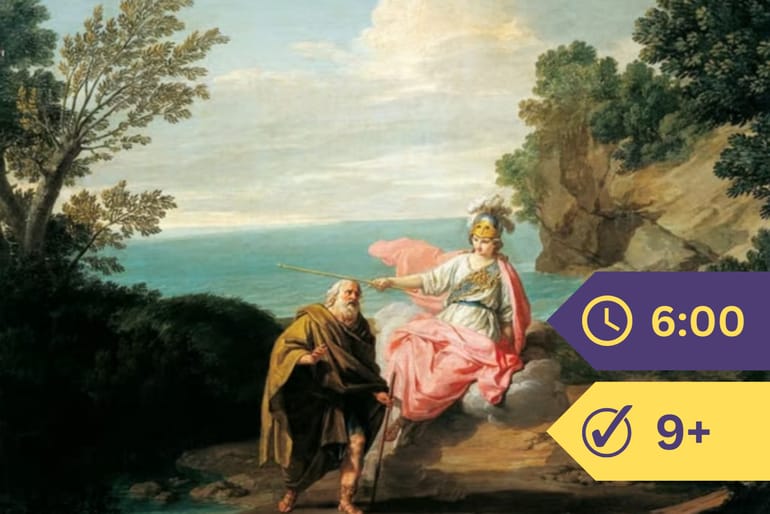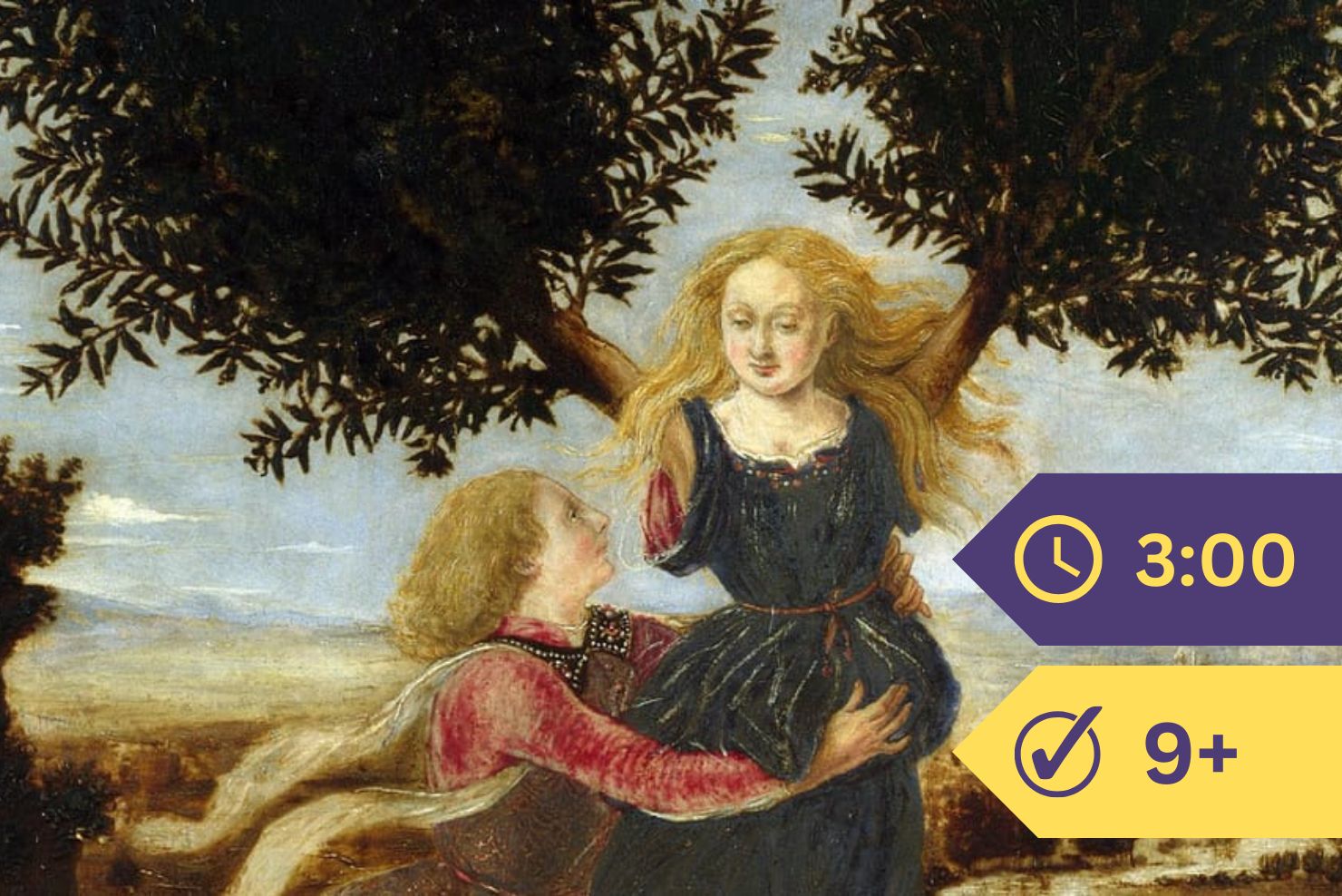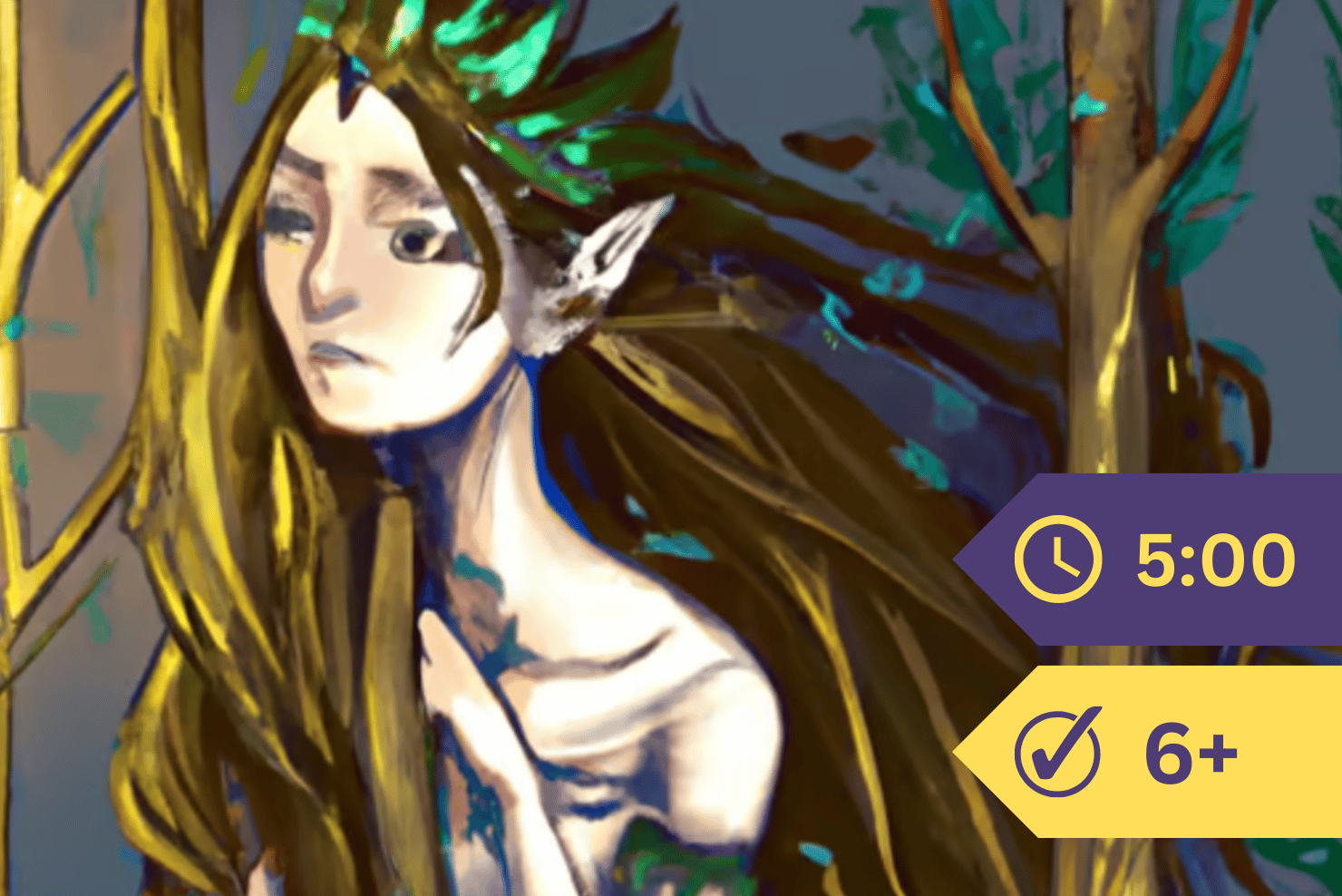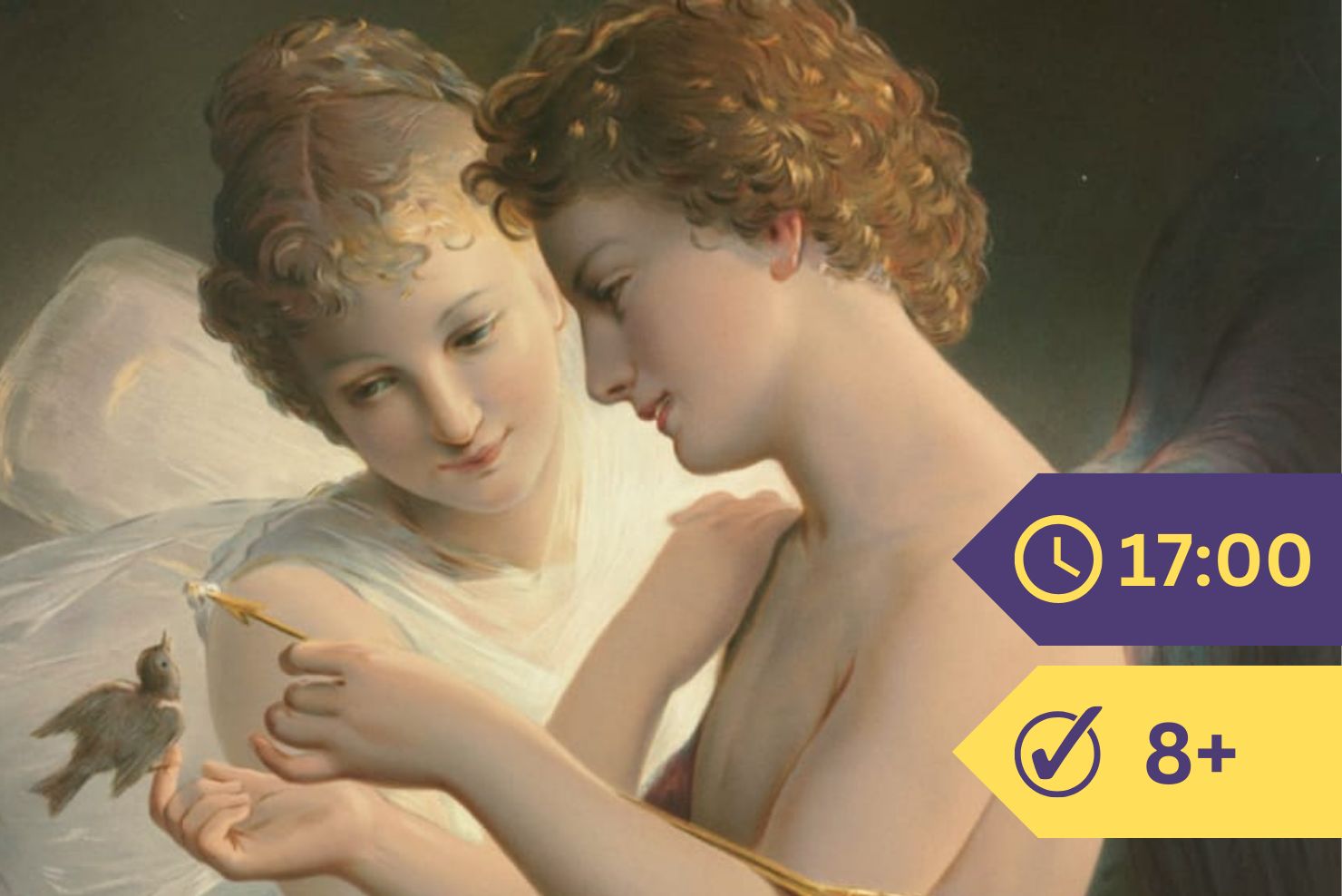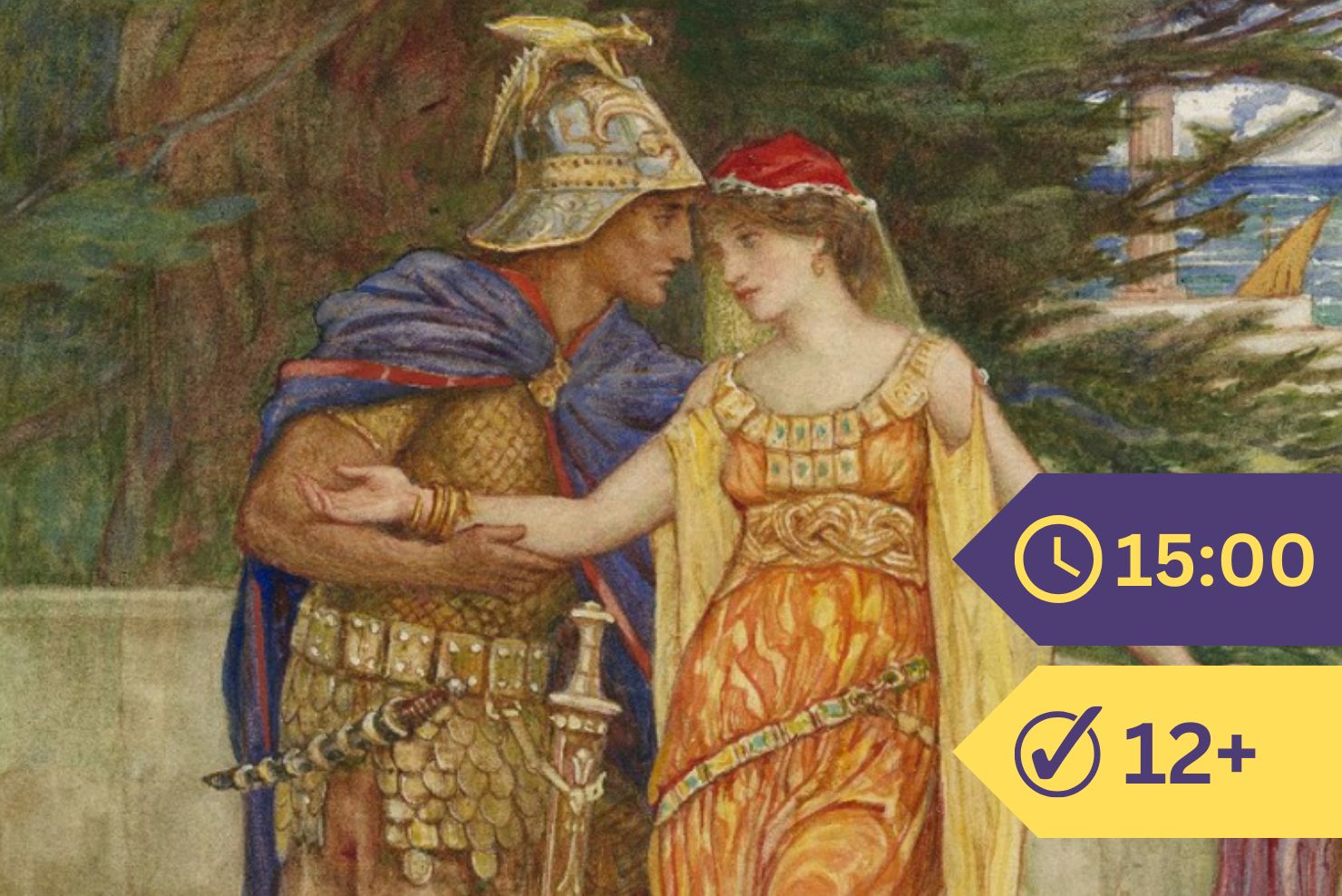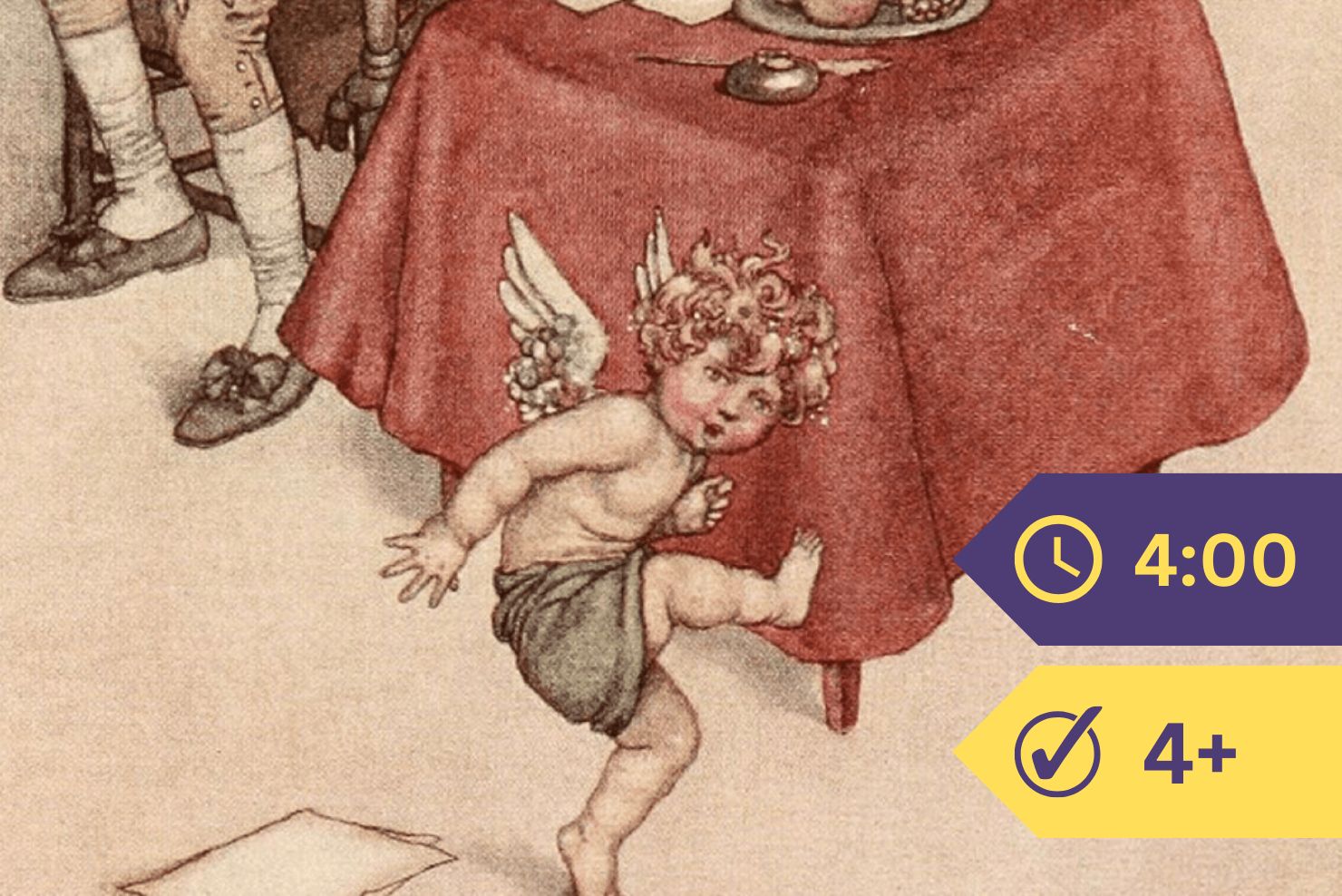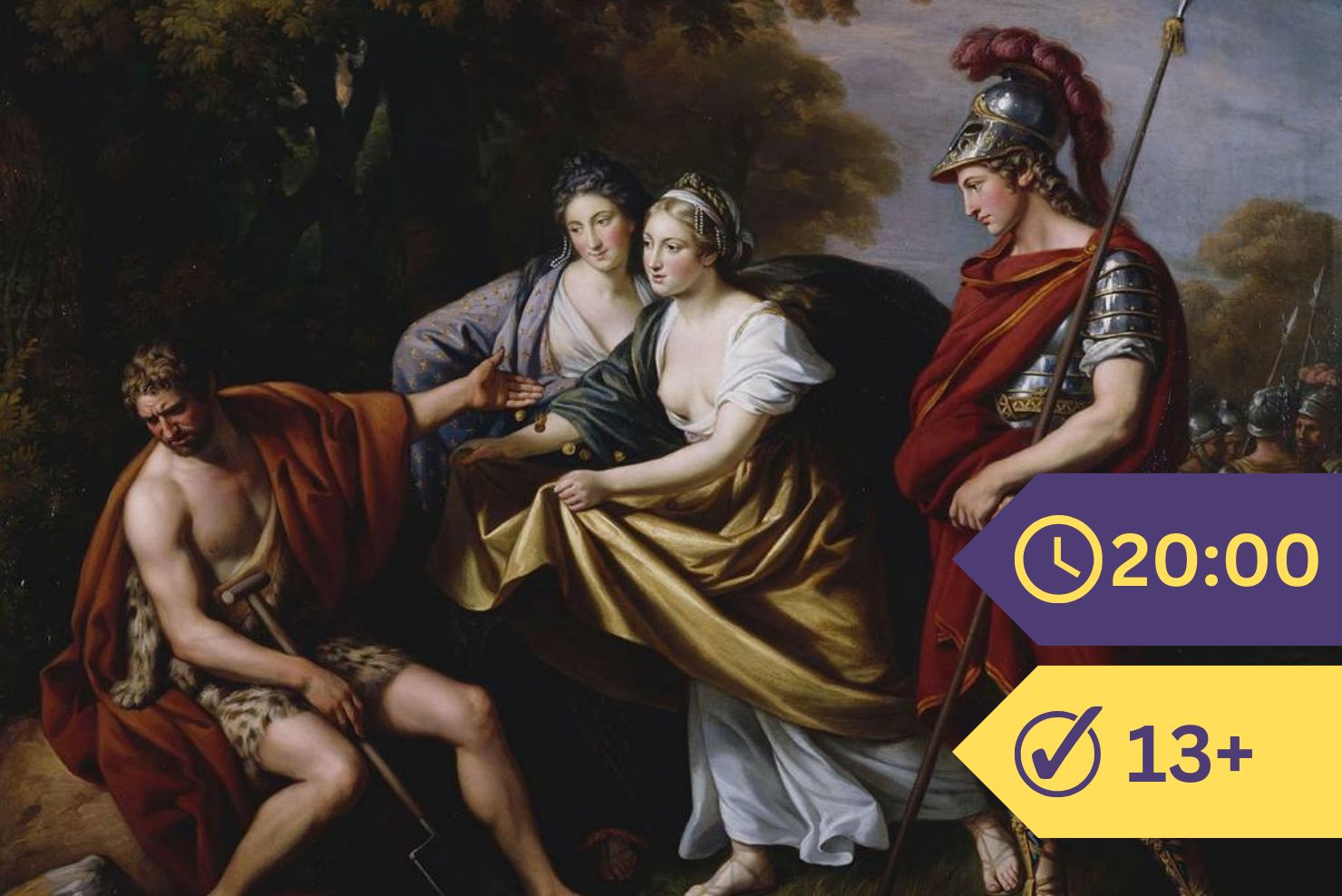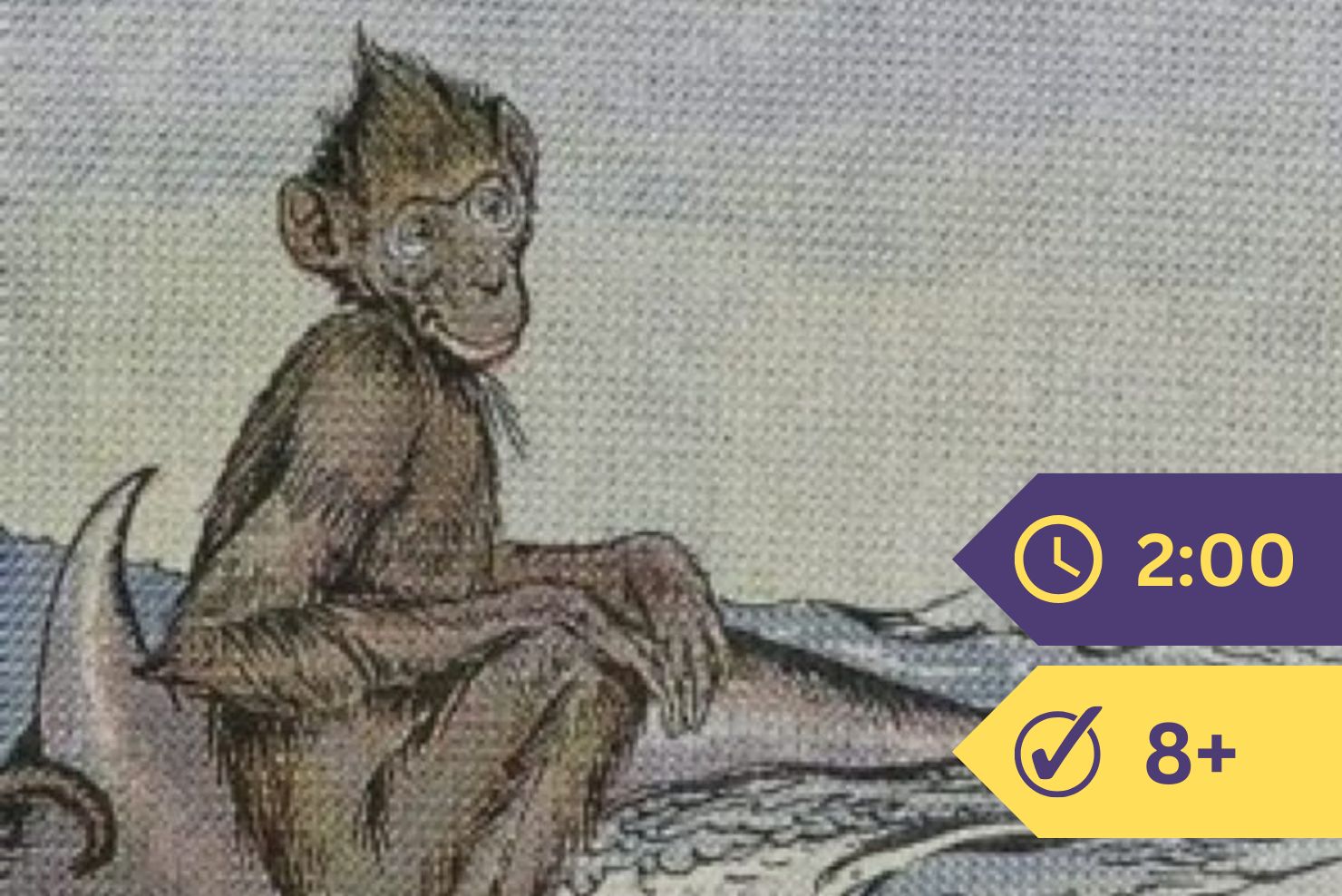Near the banks of the stream Kephisos, Erechtheus had built a city in a rocky land with a thin soil. He was the father of a free and brave people. And though his city was proud and humble, Zeus, in his wisdom, saw that one day it would be the noblest of all cities over the whole earth. And so, there was a dispute between Poseidon, the lord of the sea, and Athena, the child of Zeus, as to who would get the city of Erechtheus. Thus, Zeus appointed a day when he would judge between them in the presence of the great gods who lived on high Olympus.
When the day arrived, the gods sat on their golden thrones on the banks of the stream Kephisos. High above all was the throne of Zeus, the great father of gods and men, and beside him sat Hera, the queen. On this day, even mortals could look upon them, for Zeus had set aside his thunderbolts and all the gods had descended in peace to listen to his judgment of Poseidon and Athena. There sat Apollo with his golden harp in his hand. His face gleamed with the brightness of his beauty, there was no anger in his shining eyes, and beside him lay the faultless spear with which he strikes anyone who acts falsely and speaks lies.
Beside him sat Artemis, his sister, who loved best to play with the beasts of the earth and with the nymphs on the reedy banks of Eurotas. There beside Zeus sat Hermes, ever bright and youthful, the spokesman of the gods. There sat Hephaistos, the lord of fire, and Hestia who guards the hearth. There was also Ares, who loves war. And Dionysos, who is fond of feasting and the wine-cup, and Aphrodite, who rose from the sea-foam to fill the earth with laughter.
Before them stood the great rivals, awaiting the judgment of Zeus. High in her left hand, Athena held the invincible spear; and on her shield, hidden from mortal sight, was the face upon which no man may look and live. Close beside her, proud of the greatness of his power, waited Poseidon for the start of the contest. In his right hand, his trident gleamed with which he shakes the earth and cleaves the waters of the sea.
Then the spokesman Hermes arose from his golden throne, and his clear voice rang through the great council. “Listen,” he said, “to the will of Zeus, who now judges between Poseidon and Athena. The city of Erechtheus shall be named for the god who shall bring forth the best gift from the earth for men. If Poseidon does this, the city shall be called Poseidonia; but if Athena brings a better gift, it shall be named for her.”
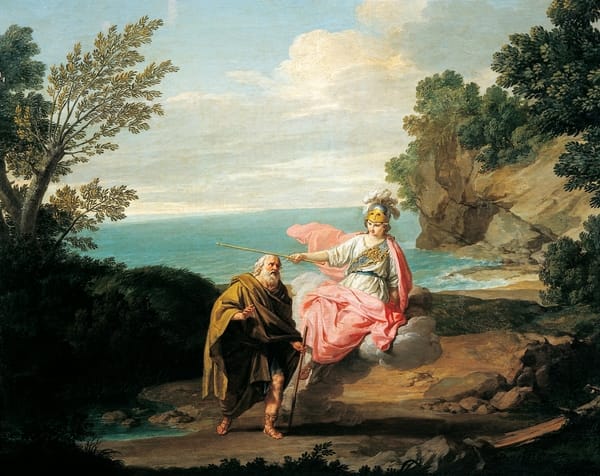
Then King Poseidon rose in his grandeur, and with his trident he struck the earth where he stood. Immediately the hill was shaken to its depths, and the earth split asunder, and from the cleft sprang a horse, such as shall never be seen again for its power and beauty. Its body shone white as snow; its mane flowed proudly with the wind as it stamped on the ground and ran riotously over hill and valley. “See my gift,” said Poseidon, “and call the city by my name. Who will give anything better than such a horse to men?”
But Athena gazed steadfastly at the gods with her sharp eyes; and she slowly stooped to the ground and planted therein a tiny seed which she held in her right hand. She spoke no word, but gazed calmly at the great council. Soon they saw a small shoot spring from the earth, which grew and threw out its branches and leaves. Higher and higher it rose, with all its thick green leaves, and brought forth fruits on its clusters of branches.
“My gift is better, Zeus,” she said, “than that of King Poseidon. The horse he has given will bring war, strife, and fear to the children of men. My olive tree is the sign of peace and abundance, of health and strength, and the promise of happiness and freedom. Will the city of Erechtheus be named for me?” Then the voices of the gods rang out unanimously in the air, as they exclaimed: “The gift of Athena is the best that can be given to men. It is the sign that the city of Erechtheus will be greater in peace than in war, and nobler in its freedom than its power. Let the city be named Athens.”
Then Zeus bowed his head as a sign that the city of Athens would be named. The earth shook under his feet as he rose from his golden throne to return to the halls of Olympus. But Athena remained standing, gazing over the land that was now hers. And she stretched out her spear towards the city of Erechtheus and said: “I have won the victory and here will be my home. Here my children will grow up in happiness and freedom; and here the children of men will come to learn of law and order. Here they will see what great things can be done by mortal hands when aided by the gods who dwell on Olympus. And when the torch of freedom is extinguished in Athens, the light will be passed on to other lands, and the people will learn that my gift is still the best. And they will say that respect for the law and freedom of thought and action comes to them from the city of Erechtheus, now named Athens.”

